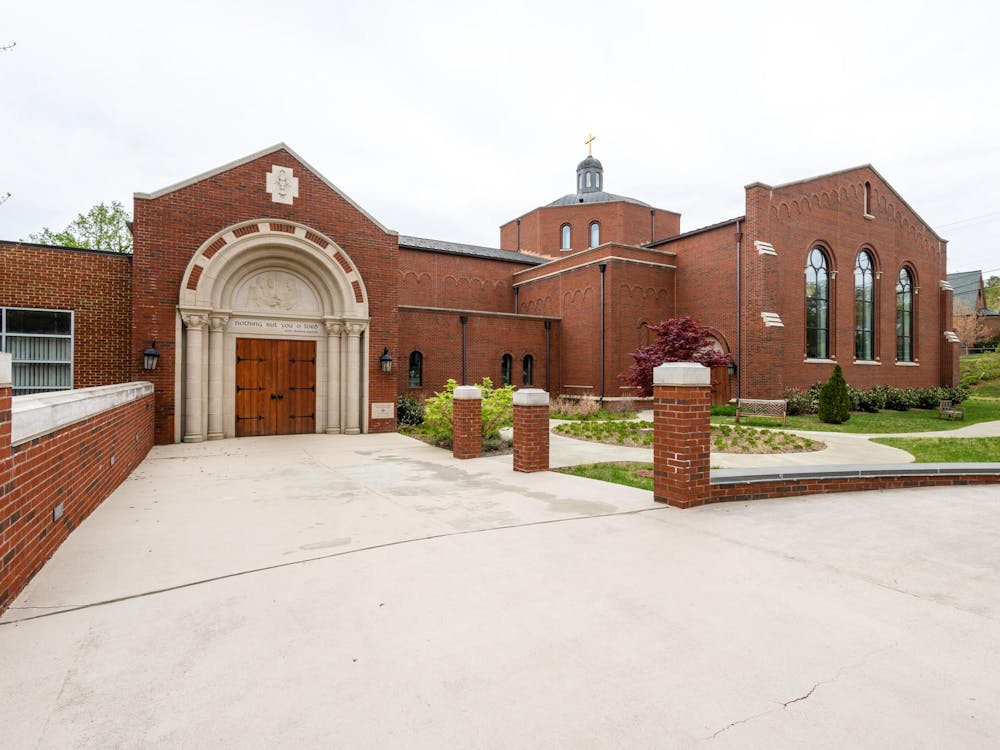The Law School's Immigration Law Program and the Journal of Law and Politics held a symposium Friday to discuss the future of immigration enforcement, focusing on problems in the United States’ immigration enforcement system.
Speakers and panelists from academia and the government discussed finding stable and sustainable solutions to immigration control. The symposium also honored Law Prof. David Martin, an expert in immigration, constitutional law, and international law, who will celebrate 35 years on the Law School faculty next fall.
Doris Meissner, senior fellow and director of the U.S. Immigration Policy Program at the Migration Policy Institute, gave the keynote address. Meissner, formerly the commissioner of the U.S. Immigration and Naturalization Service, said the United States is entering a new age of immigration.
“The era of large scale unauthorized migration that we’ve been experiencing for four decades from Mexico is over,” Meissner said.
Migrants crossing the border today are doing so for different reasons than in the past, she said, and the new situation calls for creative new solutions. — which may not come from Congress.
“When you look at the politics of what has kept immigration reform from happening, it is entirely possible that we will not have a Congress that can enact immigration reform, so we have to work with what we have,” she said. “Immigration reform is not saving us, and it may not save us for a while.”
Martin said the symposium focused on enforcement rather than reform because it is an important issue that often does not receive a lot of publicity.
“Immigration reform generally is an important issue,” Martin said. “We wanted to focus on a side that hasn’t gotten as much attention: enforcement, and what kind of enforcement measures can we adopt in the future. … [Meissner] provided a good and full analysis of the situation and what we’ve been able to do.”
Third-year Law student Rhett Ricard, editor-in-chief of the Journal of Law and Politics, agreed.
“I hope attendees gained an understanding of the competing conceptions on how to move forward for immigration enforcement,” Ricard said in an email. “Any future action on immigration enforcement, if any occurs, will likely be accomplished through executive action. Such action raises a host of political and legal issues, such as how the electorate will respond to executive actions on immigration and how does executive action undermine and/or strengthen the rule of law concerning statutory duties for immigration enforcement.”
Meissner said the new trends in immigration are not well understood by the public.
“There are certainly still crossers,” Meissner said, but “we’ve had no new net illegal immigration from Mexico for at least five years.”
Meissner laid out several reasons for the shift in crossings over the southwest border. Fertility in Mexico has significantly decreased, the recession in the United States has lessened the allure of the American job market and Mexico’s job market has become steadier, she said.
In addition to these structural changes, federal legislation in 1996 “greatly expanded… the grounds for removal” of immigrants, and changed the way deportations are carried out.
“A fundamental shift [occurred], from removing people through informal methods to formal methods of removal,” Meissner said. Before 1996, formal deportations accounted for only 3 percent of deportations at the southwest border. Now, almost 75 percent of all deportations are formal.
“People who have been formally removed become ineligible for visa,” Meissner said, and they are likely to receive criminal charges if they come back.
Meissner said 68,000 unaccompanied children crossed the southwest border this summer, and the crisis might not be over.
“The issues have gone off the front pages,” Meissner said. “But the fundamentals are still in place. This crisis [is] a reason to think more carefully and more broadly about the new challenges that face our system.”
Meissner proposed re-thinking legal representation, the roles of various agencies, and the place of the United States within the region.
“The deeper causes for migration comes from the conditions in these [Latin-American] countries,” Meissner said. “These countries are going to have to change dramatically for immigration to change. Violence is tied to drugs, and the demands for drugs is in this country. … We are tied together [with those countries]. So what is our shared responsibility as part of the region?”






